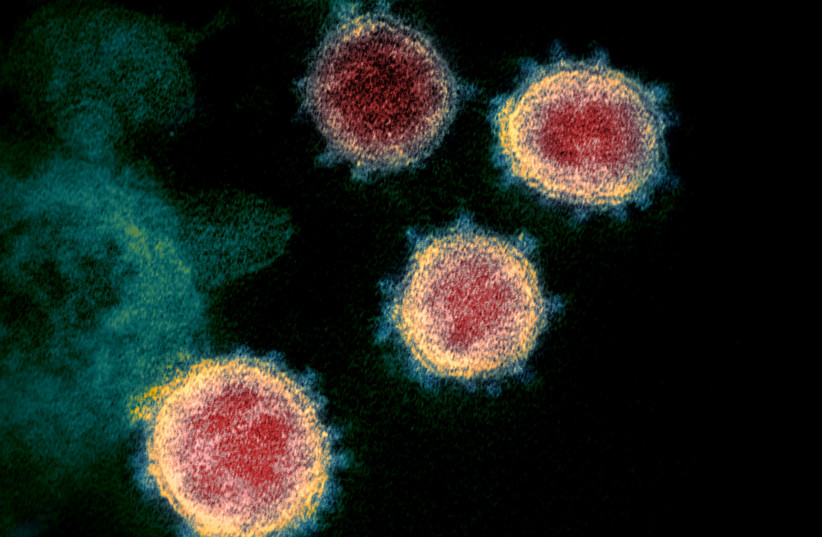Government rules on COVID-19 travel should make a distinction between foreign nationals who have strong ties to Israel and other tourists, Knesset Law and Constitution Committee chairman MK Gilad Kariv said on Tuesday, during a session devoted to the difficulties encountered by visa-holders, spouses and relatives of Israeli citizens trying to enter the country.
Since the beginning of the pandemic in March 2020, when Israel first closed its borders to non-citizens, the issue has presented a variety of problems.
The government’s decision on Saturday to completely close its borders to non-citizens after the discovery of the potentially dangerous Omicron variant exacerbated the problem. The decision is valid for two weeks. Health Minister Nitzan Horowitz said that the ban is temporary and will not be automatically renewed.
“We announced the meeting regarding restrictions on entry into Israel even before the outbreak of the new variant, which only sharpened the need for this discussion,” Kariv said. “The need for this conversation has become more urgent and substantial. It deals not only with the new variant but with the policy of the Interior and Foreign Affairs ministries regarding the entry of foreigners into Israel.”
No changes in the current regulations were made during the meeting, but Kariv said another meeting will be set up soon.

He asked the Population and Immigration Authority in consultation with the Health Ministry to ensure that visa-holders whose center of life is in Israel, spouses of Israelis, and parents of an Israeli citizen who is about to give birth should be able to receive permission to enter the country immediately.
The MK also requested that when the Omicron emergency is over, or if it is too protracted beyond the upcoming two weeks, broader solutions are needed to allow family members of Israeli citizens to visit, even if they do not meet the criteria on who is considered protected from the virus set by the Health Ministry. Those criteria include people who have been vaccinated three times; twice within six months; those coming from countries providing electronic recovery certificates; those recovered within the previous six months; or recovered with a shot.
Several MKs and representatives of the public, including former MK Dov Lipman, founder of the NGO Yad L’Olim, spoke during the meeting, describing the difficulties and the ongoing situation of chaos.
“I feel I have been waiting for this moment for two years,” Lipman said.
He then listed several individual problems currently occurring, such as a daughter who is giving birth not being considered valid grounds for the parent to receive permission to travel. He also noted previous situations in which recovered first-degree relatives from several countries, including the US, did not have any way to visit the country even for a family event, because Israel would not recognize their vaccination documents.
Established earlier this year with the purpose of supporting new immigrants in Israel, Yad L’Olim has been instrumental in pushing the authorities to improve and clarify the COVID-19 travel regulations, including persuading the Constitution Committee to set up the Tuesday session.
“I believe that the Population Authority is now going to be pushed for answers to the questions that were raised,” Lipman said after the meeting. “I’m going to push very hard because these issues are very important – and they are very important now. The answers need to come quickly.
“To all the expectant mothers I say, I’m not going to rest until your parents are given the right to be at your side as you give birth,” he vowed.
The right to receive special permission is currently given to first-degree relatives of an Israeli bride or groom, or to the parents of grandchildren celebrating their bar/bat mitzvah.
One of the problems revealed during the meeting was the lack of coordination between different ministries – Health, Interior and Foreign ministries among others – and how each of them often used this excuse to avoid taking responsibility.
“I think today we saw clearly how the Population Authority would blame something on the Health Ministry, and the ministry on the Population Authority,” Lipman said. “We need a different process to be in place, and I believe that now that the Knesset is finally getting involved, things will be done in a better and more transparent manner.”
Kariv asked to have clarified why specific decisions on who is allowed to enter were made at the ministerial level by the Interior Ministry – specifically by the Population and Immigration Authority – as opposed to the COVID-19 cabinet, with the subsequent need for approval by the full government and a Knesset Committee, as happens with regulations passed under the COVID-19 law.
“We finally succeeded in having a call for Knesset oversight over the issue, and this can make a huge difference,” Lipman said.
